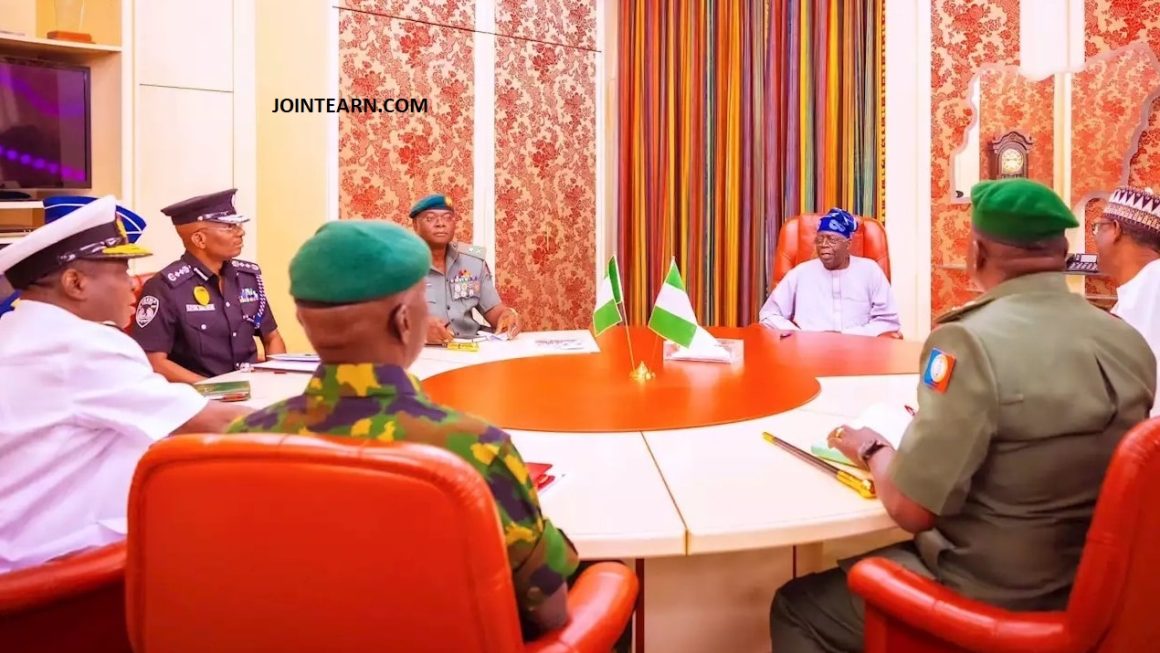The Nigerian Police Force has issued a stern warning against the planned nationwide protest set for April 7, 2025, describing the move as “mischievous” and potentially harmful to national security. The protest, which has been widely discussed on social media and organized by various civil society groups, is being called in response to a series of economic and political grievances that have been voiced by citizens across the country.
The police statement, released earlier this week, came amidst growing concerns about the potential for violence and the disruption of public order. The planned demonstration, organized by multiple activist groups, aims to address a wide range of issues, including rising inflation, unemployment, and alleged government corruption. While organizers claim the protest will be peaceful, the police have expressed concerns about the risk of chaos and violence, especially in light of past protests that escalated into clashes with law enforcement.
A Call for Action
The planned protest has gained traction among certain sectors of the Nigerian population, particularly among young people who have been vocal about their dissatisfaction with the current administration’s handling of key issues such as the economy and security. Organizers have called for widespread participation, with rallies expected to take place in major cities like Lagos, Abuja, Port Harcourt, and Kano. The groups behind the protest are pushing for what they describe as “systemic change” in Nigeria’s governance, particularly in areas of corruption, the economy, and human rights.
In a statement issued by the protest’s organizing committee, leaders emphasized that the demonstration is intended to serve as a peaceful expression of public dissatisfaction with the status quo. “We are not calling for violence, but for the government to pay attention to the issues that matter to ordinary Nigerians. We want jobs, security, and transparency in governance,” said one of the protest organizers, who spoke on the condition of anonymity.
However, the Nigerian Police Force, led by spokesperson Olumuyiwa Adejobi, has swiftly condemned the protest, calling it “mischievous” and urging citizens to refrain from participating. The police argue that the timing and organization of the protest are suspicious, especially given the volatile political environment in the country.
Police Concerns and Response
The police have repeatedly warned that the planned demonstration could lead to disruptions of public peace and order. According to spokesperson Adejobi, there is a high possibility that the protest may be hijacked by individuals with ulterior motives, leading to violence and public disorder. “The protest is nothing but a mischievous attempt to disrupt the peace of the nation,” Adejobi stated. “We understand that there are grievances, but there are constitutional ways to address these concerns. Creating chaos in the streets is not the solution.”
The police have also pointed to the potential risks associated with large-scale protests, especially in urban centers where the presence of protesters could lead to confrontations between demonstrators and law enforcement. In 2020, Nigeria witnessed the #EndSARS protests, which initially began as peaceful demonstrations against police brutality but quickly escalated into violent clashes. The #EndSARS protests left many dead, and the aftermath led to widespread destruction and a significant deterioration of law and order.
Given this history, the police are concerned about the possibility of similar events unfolding during the April 7 protest. “We are ready to ensure that law and order are maintained, and anyone caught disrupting public peace will face the full force of the law,” Adejobi added.
Additionally, the police have appealed to the organizers to follow legal procedures, including obtaining the necessary permits for public gatherings, as required by Nigerian law. While the police have a constitutional duty to allow peaceful protests, they insist that such demonstrations must be conducted within the boundaries of the law to avoid disruptions and potential violence.
Political Reactions to the Protest
The planned protest has elicited mixed reactions from political figures across the country. Some politicians, particularly those in opposition parties, have expressed support for the demonstrators, agreeing that the economic and political conditions in the country are dire and that citizens have the right to voice their concerns. These politicians have called on the government to listen to the demands of the people and address the issues of unemployment, corruption, and the high cost of living.
Senator Dino Melaye, a prominent member of the opposition People’s Democratic Party (PDP), expressed solidarity with the protestors. “The government must understand that the people are suffering. A peaceful protest is a democratic right, and the government must engage with the people rather than stifle dissent,” Melaye said.
On the other hand, some government officials have dismissed the planned protest as unnecessary and politically motivated. They have accused the organizers of attempting to destabilize the country for personal or political gain. Femi Adesina, Special Adviser to the President on Media and Publicity, has called the protest “ill-advised” and suggested that the issues raised by the demonstrators could be addressed through dialogue, rather than disruptive public demonstrations.
Public Sentiment and Economic Grievances
The protest is set against the backdrop of increasing economic hardships in Nigeria. The country is grappling with rising inflation, a devalued naira, and widespread unemployment. Many Nigerians, especially young people, are struggling to make ends meet, and the lack of tangible progress on these fronts has fueled dissatisfaction with the government.
According to the National Bureau of Statistics, Nigeria’s unemployment rate stands at over 33%, and inflation has reached a record high, putting everyday essentials out of reach for many citizens. The government’s inability to effectively tackle these issues has left many feeling disillusioned and angry.
Protest organizers argue that these economic conditions, along with allegations of government corruption and mismanagement, have created a powder keg of frustration among ordinary Nigerians. They see the protest as an opportunity to demand better living conditions, economic opportunities, and more transparent governance.
A Divided Nation
While some citizens are eager to take to the streets on April 7, others remain wary of the potential consequences of such a large-scale protest. Many fear that the demonstration could lead to further instability, especially given the history of violent protests in Nigeria. Others are concerned about the economic impact of any disruption, particularly in cities that are already struggling to recover from the effects of previous protests and unrest.
As the country braces for the April 7 protest, the question remains: will the demonstration remain peaceful, or will it spiral into chaos and violence? The Nigerian Police Force has made it clear that it is prepared to act decisively in maintaining public order, but the final outcome will largely depend on the actions of the protestors and how the government chooses to engage with their demands.
For now, all eyes are on April 7, as Nigeria prepares for a day that could either mark a pivotal moment in the country’s democratic process or another chapter of unrest and division.










